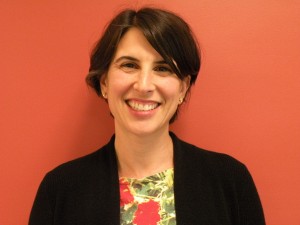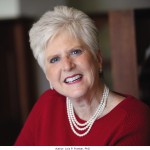
Widgetized Section
Go to Admin » Appearance » Widgets » and move Gabfire Widget: Social into that MastheadOverlay zone
Power Of Learning From Mistakes
25 Influential women share lessons they learned on the way to success
 While it’s often inspiring to hear success stories, we often learn more from people’s mistakes. But, most people would rather share their successes rather than their failures.
While it’s often inspiring to hear success stories, we often learn more from people’s mistakes. But, most people would rather share their successes rather than their failures.
That’s why is was so refreshing to read Mistakes I Made At Work: 25 Influential Men Women Reflect on What They Got Out of Getting It Wrong by Jessica Bacal. The book features stories from household names like Lani Guinier and Sheryl Strayed to lesser-known, but no less inspiring, women like Danielle Ofri.
Each woman shares a story of a time when things weren’t going as planned and what they learned from the experience. At the end of each chapter, they also share a few tips they’re picked up over the years. While you can read the book from start to finish, you can also turn to a section that reflects an issue you’re struggling with in your own life.
Luckily I had the opportunity to not only read Mistakes I Made At Work, but to also interview Bacal about interviewing these women and putting the book together. Here are her thoughts.
I loved the book’s format. Can you explain why you decided to focus on mistakes rather than success stories?
Thanks! I chose this focus because I was in a new role at Smith College, and was making a lot of mistakes myself. At the same time, I noticed a gap in the conversation about women, work and leadership. There were no “mistake stories” out there. And I started to think that I – and the young women with whom I worked – needed these stories. Students talked often about the feeling that they needed to do everything right; they thought that everyone else had it together, and that they were the only ones making mistakes. But research shows we all have to make mistakes in order to succeed and to develop as leaders. I wanted to write a book that would model that for women (and would also make me feel better about my own mistakes).
The book is divided into four areas: Learning to Take Charge of Your Own Narrative, Learning to Say Ask, Learning to Say No, and Learning Resilience. How did you choose those particular areas?
Those themes emerged from the interviews. Many women talked about becoming aware of what was important to them, work-wise, and that’s how I developed a section called “Learning to Take Charge of Your Own Narrative.” For example, the Harvard legal scholar Lani Guinier told me about realizing she never wanted to be a judge – which is the supposed pinnacle of a legal career – because she didn’t want to be in the position of making decisions about other people’s lives with less-than-complete evidence. Through working with colleagues at the NAACP Legal Defense and Education Fund, she discovered that she loved both collaboration and legislative advocacy, and she told me, “It’s liberating to free yourself from the assumption that the best way to succeed is to keep moving up a ladder.”
In “Learning to Ask,” contributors told me about “asking” across a variety of contexts: A doctor discovered that she didn’t always have to have the answers but could consult with colleagues around her; a journalist talked about pushing herself to negotiate on each assignment, asking for what she thought she was worth. The stories in “Learning to Say No” and “Learning Resilience” include tales of walking away from a job, and of bouncing back after being fired.
Which of the four areas do you think is the most difficult for women? Why?
I think women are often socialized to feel they have to take care of those around them, and so setting limits – by saying no – can be especially hard. This kind of socialization is the same reason that “learning to take charge of your own narrative” can be challenging. We’re under pressure to be “good girls” from a young age, but in order to be ambitious we need to compete, or even to make choices that disappoint or dismay others. These things can feel at-odds with the pressure to be caretakers.
I don’t want to ask you to pick a favorite story, but whose story most surprised you? Why?
What surprised me the most was something that happened after the book was written: Joanna Barsh, Director Emeritus at McKinsey, had told me a story about having “fudged” data once during a business school internship – long ago. It’s a great story, and she had a chance to review it before it went to press, so she knew exactly what would be in the book.
But as soon as the book was published and we started getting emails from media, Barshbegan to worry about having told the story at all. She and I had many emails and tweets back and forth about properly framing her story in an ELLE Magazine article, and then Barsh joined me for the book’s launch panel in NYC at the 92Y. That night, she told people that the story in the book wasn’t the real mistake. “The real mistake,” she told the audience “was that for thirty-odd years, I carried the guilt. I was so ashamed that when the magazines were calling Jess to write these stories about her book, I kept saying, ‘I can’t tell you who I work for because they might fire me,’ but actually I had RETIRED a year before.”
She then said that in talking this over with her husband, he had told her, “Guys do this all the time. You throw the outliers out so that the rest of the data looks good.”
And she said that the whole experience just brought into relief what she’s learned in her own research on women and work, which is that women – and she said she herself in particular – carry things for a very long time and are striving for perfection . . . and do it for a variety of reasons. “And in my case,” Barsh told the audience, “one mistake was enough to obliterate thirty years of good work.”
I was surprised that someone of Barsh’s stature – who had already retired – would be so worried about having a “mistake story” out there, but this experience also made me appreciate that she’d been willing to make herself vulnerable in support of the book and its message.
What do you want women to take away from this book?
I hope they’ll feel comforted, and will feel a bit liberated and inspired by knowing that even very successful women have made missteps. I also hope it will help women to mentor each other, encouraging them to be open about their own mistake stories when it feels like it’s appropriate and might be helpful to a friend or colleague.
What advice would you give your younger self?
Find a person, hopefully someone a little older, with a little more life experience, with whom you can talk about your ambitions and goals. It should be someone who is not invested in your succeeding in any one particular way, but who can listen to you and advise you about your career without being pushy. Be willing to say to more than one person whom you admire, “Might you have an hour at some point when I can take you out for coffee? I like you and respect what you’ve done with your own career, and I’d love to just tell you what I’m thinking about my own and get your feedback.” People are flattered by being asked to talk about their own life paths and to give advice. And it can be really helpful.







You must be logged in to post a comment Login